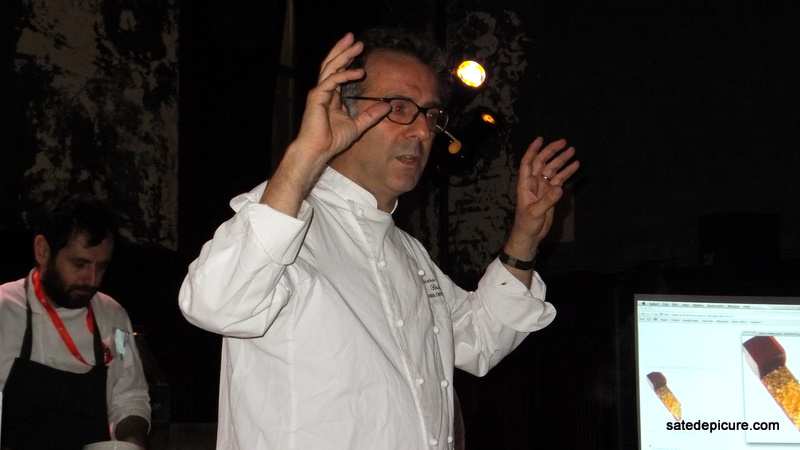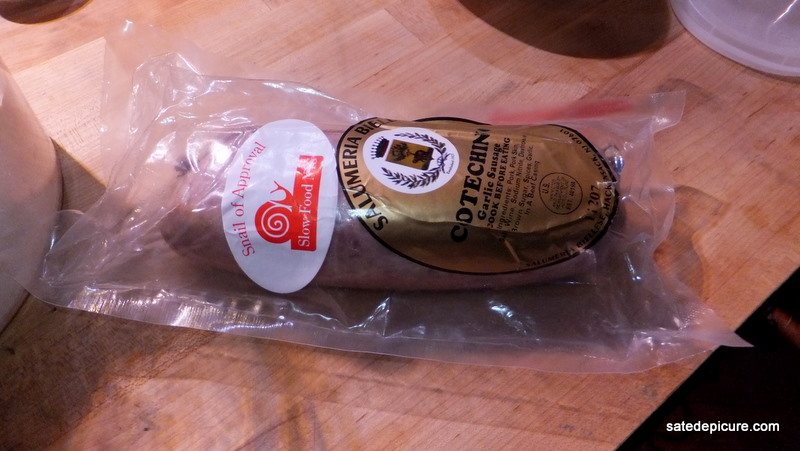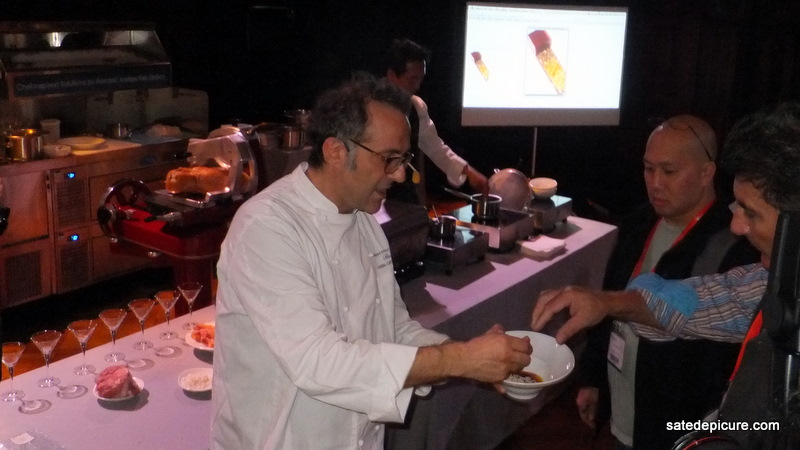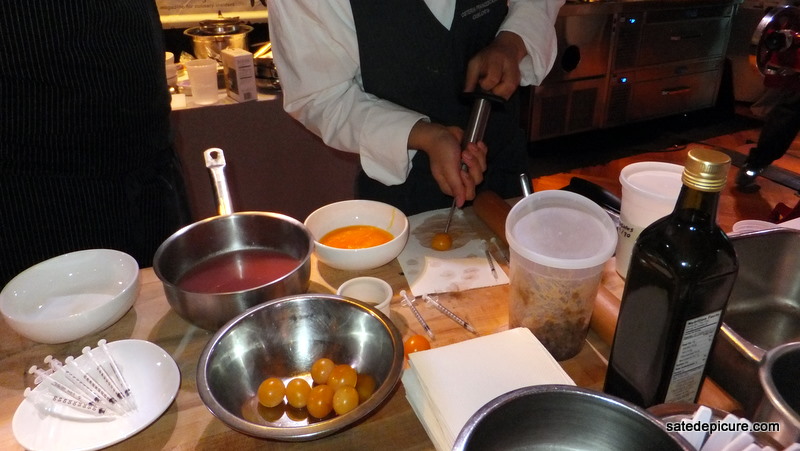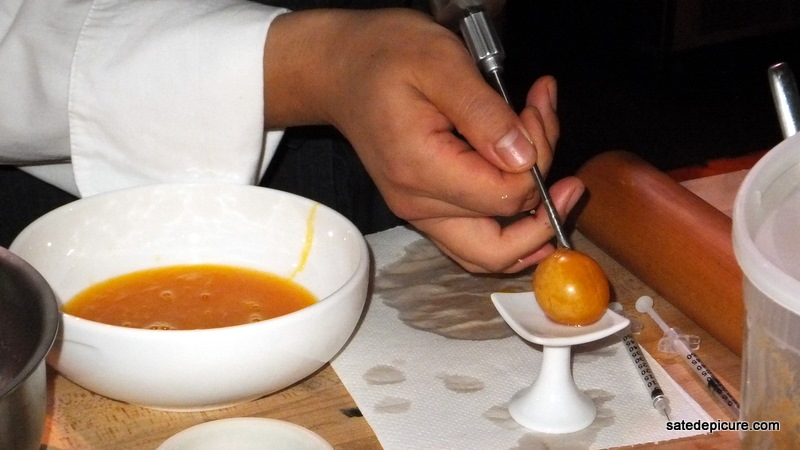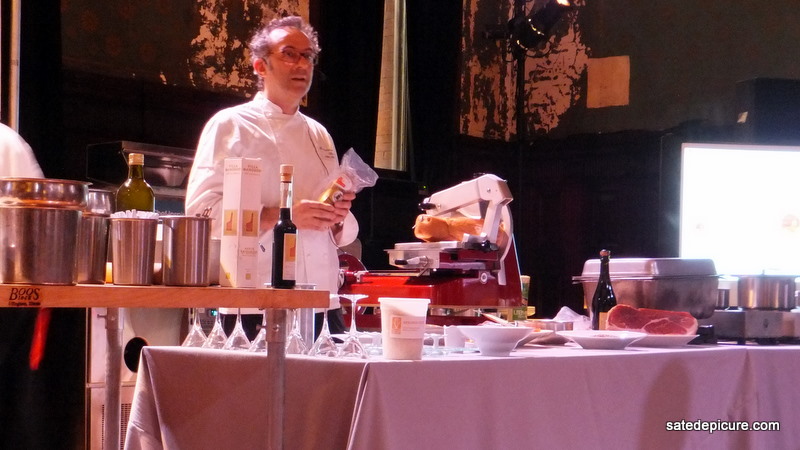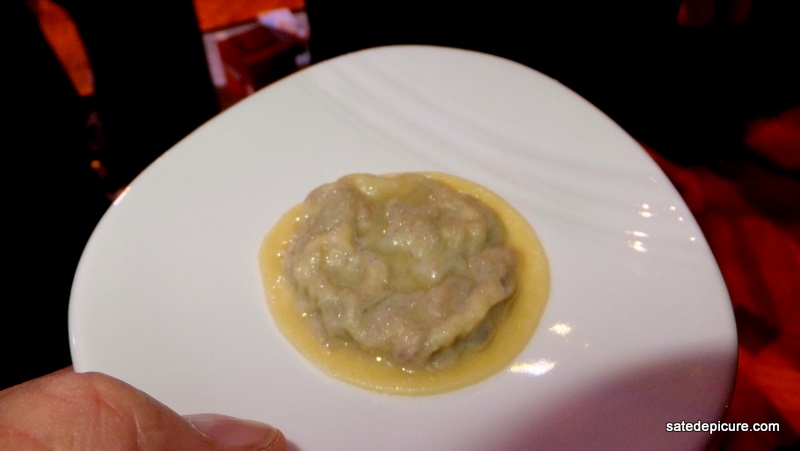Massimo Bottura is hustling back and forth in front of a draped stainless steel work table just minutes before his presentation is to begin. The scheduled start time arrives and passes and, after another few minutes, he looks up. It’s obvious that Bottura is improvising and riffing in the kitchen and that he runs on his own schedule. My purpose is to spend the next 90 minutes with fifteen other participants observing Bottura’s mastery and getting into the head of one of the leading avant-garde chefs in all of Italy. This is the next best thing to dining at Bottura’s two Michelin star Osteria Francescana in Modena. Lucky for me his English is excellent.
There is no introduction on his part or any sort of overview of where we are headed. Instead he launches right into philosophy illuminating his emotional connection to Cotechino sausage with lentils, the traditional New Year’s Eve dish in Italy. His expression softens as he explains that lentils, according to tradition, represent the coins of wealth to be won in the coming year and how the dish triggers emotional memories of his youth and grandmother in particular. I am curious where he is headed with this. He turns, looks my way, stops and lets out his first nugget “you have to learn everything and then forget everything to create something incredible.” Bottura has one culinary hand connected to the past and one reaching toward the future.
He suggests that his dishes are an evolution rather than a revolution. They are drawn from many things including prior experiences in life, from his youth, from emotional events, from love. I connect the dots and realize that his passion for food started in his youth and that everything he envisions in rooted in this past. When you pair emotion and passion with mastery of fundamental and modern culinary technique the avante garde origin of Bottura’s cuisine is found. Evolution requires that you feed your heart, feed your soul and engage in tradition while redefining convention.
At this point Bottura lifts a small yellow ball between his thumb and index finger. It’s an immature egg found only in the visceral cavity of a dressed laying hen. When he was young, Bottura and his brothers would compete to secure the immature eggs inside hens being prepared for their family meal. He was fond of eating these little golden gems and today experiments with them as a receptacle for containing flavors. In a startling display of elegant simplicity Bottura’s assistant places an immature egg on a tiny white porcelain pedestal and draws out the liquid in the center using a large stainless steel syringe and replaces it with a fresh injection of Prosciutto di Parma ham broth ~ ham and eggs. They are delicious and representative of Bottura’s approach. Start with an item with deep significance, one that when eaten evokes memories and emotion, and innovate from there.
Next Bottura begins making ravioli with lentils and Cotechino while explaining that the ravioli is nothing more than a vessel for serving ideas. He explains that questions are constantly flowing through his head “how can I make this, how can I do that?” He is constantly grinding and processing ideas and this is part of why Bottura is so different. He has mastered the techniques of critical reflection and problem solving and uses them both to create and innovate. Are these the skills of the modern chef?
Handing me ravioli, Bottura explains that his final point is leadership. A great two Michelin star restaurant like his runs on the backs of a large group of people committed to his vision. He is nothing without his team and assures that his success isn’t about him, it’s about his team. His point is sound; a great chef can’t do it alone. A chef must be able to lead and have followers willing to join or all the mastery of technique, professional experience and emotion are lost. I suck down the ravioli and it is delicious. Bottura looks me in the eye, scans the rest of the people standing with me and explains that the ravioli reminds him of the ones he learned to make when he was a young boy. Then he lets out his final snippet of philosophy: “modern cuisine is about emotion as much as it is technique. For this I put my grandmother between meand Adria.” How cool is that.
Chef Massimo Bottura
Via Stella 22, Modena 41100, Italy
